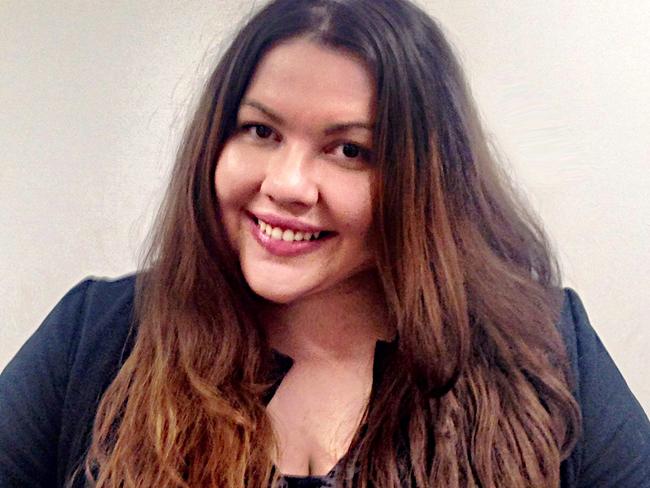How I learnt the importance of reporting sexual harassment in the workplace
SYDNEY woman Alexandra Tselios, 32, bravely reveals her horror at being propositioned for sex by her male boss, and what she learnt by speaking up.
WHEN I was much younger I worked for a man who was beguiling, rude, abrupt and dismissive. He also had an appealing gentlemanly accent and told interesting stories. He seemed to only hire women. He would tell me how great I am and then in the same day how stupid I was. He would often sit at his desk while watching me at mine and call out, “You know what, if it weren’t for me you would be nothing”. He could also be quite generous, sweet and at times confusingly familiar. As I was still relatively young and inexperienced with office politics, my reaction was always to mentally rehearse the mantra - “just be polite, be polite, be polite, don’t make him mad, don’t react, cop it on the chin.”
It was an environment that substituted boundaries for blurred lines between personal and professional, and was confusingly difficult to navigate on a daily basis. One minute my boss would demand work with a forced intimidation that one could argue was overcompensation. The very next minute he was asking me to help him find a woman online to ‘meet up with’ while his wife was on holidays...
His greatest strength was his ability to be absolutely charming while disgustingly misogynistic, which caused those around him to react with uncertainty over whether or not he was serious. It never really occurred to me to report his behaviour either. I was young, and other women much older than me seemed to accept his constant yelling. Plus I felt misplaced empathy, as he had also been confiding in me about his open marriage, personal problems, showed photos of his grandchildren, and admitted general anger over his subsequent lost youth. He also displayed irrational outbursts that would result in yelling across a crowded office ‘You stupid b**ch’ to me, and to any other woman who mildly irritated him. No one seemed to react. His behaviour seemingly had no consequences, and I would even argue many were bemused by the ‘terrible old manager’ routine. It was nothing like Basil Fawlty - it wasn’t funny at all, it wasn’t harmless. He told me on a number of occasions that I was simply a stupid woman who would amount to nothing.

One day he went too far, he asked me to stay back to help him. As an admittedly naive young woman at the time I responded with the age old problem of ‘nerves’ and stood in stunned awe when this man, 43 years older than me started to expose himself. He then offered me wine and also offered me a large amount of money if I would touch him, which I refused. He asked me to take photos of him naked. I was speechless and hastily left the room. I was shaken and did not tell anyone about the incident. The next day, when he saw me walk into the office he immediately called to me in a grossly familiar way, “Hey, puss in boots, come into my office”. By that stage, I had regained my composure, blatantly refused to enter his office alone, and spent the rest of the week dismissive of him. I still had not reported his behaviour by this point. However, he became excessively angry towards me over time until ultimately he had a huge public melt down witnessed by many staff and resulting in senior management stepping in, removing him while he continued to shout and warning me and one other woman to never come back to work.
But I did return. In fact, I went onto successfully manage a department for many years. I never saw him again, because he never came back. The company conducted a thorough investigation, and after the incident, others came forward to report additional aggressive interactions they’d had with him. I went on to gain my Masters in Business; successfully launched a company I am proud of; started a post graduate law degree and can proudly say I have a career that my 8 year old self would be rather impressed by.
MORE: Young female doctor speaks out about male dominated industry
Unfortunately though my story, while sadly not that uncommon, had an outcome that was somewhat unconventional. Many women I know find their careers disintegrate before their very eyes while dealing with both the emotional and social ramifications when embroiled in a sexual harassment incident, that is, if it ever gets to the point of being a recorded ‘incident’. Many people also risk becoming consumed by the cyclical process of both self-shame and anger towards the perpetrator. It would be wrong for us to suggest this is primarily only a gender issue.

I have also worked closely with a gentle man who had struck up a friendship with a woman at work who had been incredibly flirtatious even to the point of kissing him one night, at after work drinks. This of course, was a huge deal to my shy friend - and with Valentine’s Day coming up I, stupidly on reflection, suggested he send her some flowers. He did not realise she had a partner, and due to the public exposure of her flirtation upon receiving his flowers at work she retaliated by filing a sexual harassment claim against him which resulted in months of workplace mediation that left him ultimately with a clear name on paper but a damaged reputation and an injured core. One’s gender is not to be immediately placed in any type of self-induced victim category.
My purpose though for telling my story is less to do with discussing strategies for coping, mitigating risk and preventing sexual harassment in the workplace. I actually want to look at the lack of consequences for those cases where it’s not necessarily just physical, at least, not initially. I want to look at the role that power and dominance can play both from a position of hierarchical authority, or gender, and the nuances between jocular activity and the systematic approach to taking down another person, whatever the reason.
When I heard the comments from Dr Gabrielle McMullin via the ABC interview that suggested one stays silent on the issue of sexual abuse to protect their career, I did immediately try to look for the reasoning behind it and considered that it may have been misconstrued in the media. Dr McMullin though stated in regards to a recent case “Her career was ruined by this one guy asking for sex on this night. And, realistically, she would have been much better to have given him a blow job on that night,” and “What I tell my trainees is that, if you are approached for sex, probably the safest thing to do in terms of your career is to comply with the request; the worst thing you can possibly do is to complain to the supervising body because then, as in Caroline’s position, you can be sure that you will never be appointed to a major public hospital.”’

I can confidently say that her approach is not only wrong, but ultimately fails to allow an individual the opportunity to assert themselves in a situation, and to potentially triumph over it. As someone who has been through this, and is actually quite a dominant personality by nature, I cannot imagine how one would react if less assertive. Fortunately, I believe strongly in valid confrontation and fighting for what I believe is just and right, not just for myself but for others. I can now sit in the same room as aggressive investors and directors and experience what one can only call a complete cat and mouse game and not flinch. I also don’t for one second believe that I am the rule. I know I am the exception. We should all have the opportunity and the right to become the exception, if we want to be, without feeling fearful, ashamed or at the mercy of anyone else’s position.
The answer is never acceptance. The answer is not to just ‘let it go’, tolerate it and hope it goes away. The answer is not to laugh it off nervously or downplay it. The answer is also not to exploit it.
Irrespective of industry, if you are approached for sex or you’re feeling harassed, the safest response is not to comply (unless of course, you want to!) regardless of how influential or high up the professional ladder that person is, who suggests your career could be thwarted. Dr McMullin’s error was publicly stating something from a position of authority that could cause detrimental harm for women already potentially unsure and feeling powerless. The safest thing to do, for your own career and to protect others is to deal with something head on, and to be aware of all your options and your own strength. How you begin that process has many different implications and will take many different forms.

The consequences for someone to put another human being in a position of any form of degradation is to ensure the ramifications are so that it becomes dire for them to not reflect on their words, actions and affect on others. The purpose for regulatory bodies is to ensure the genuine safety of those working with us and a commitment to conduct fair investigations into claims without the person’s role, on either side of the accusation, being at risk until due diligence is truly done and an outcome is achieved. If that is what is failing here, the answer is to assess and repair those frameworks, not pretend the issue isn’t there or that we are too helpless to change it. Acceptance of poor behaviour, due to fear whether actual or realised, is not what we should be aiming for as a socially progressive society. Leaders in both private and public sectors should be consistently working towards frameworks that ensure the right people feel confident in their roles, regardless of gender.
Alexandra Tselios is the Publisher and Co-Founder of The Big Smoke, one of Australia’s leading opinion sites.Alexandra has a diverse background in corporate, public and creative fields and is a regular commentator on radio across the country.



